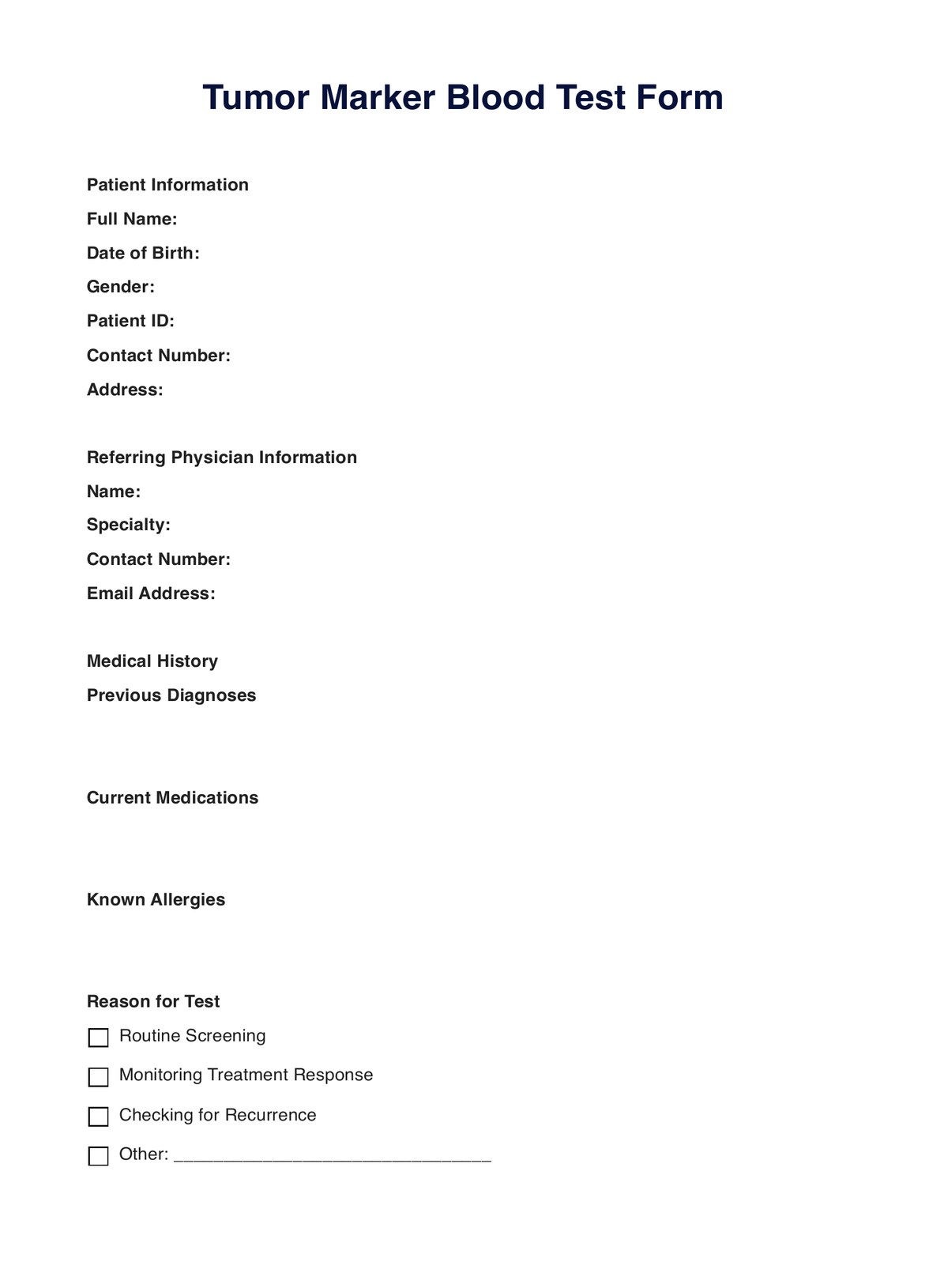Oncologists, general practitioners, or specialists might request this Tumor Marker Blood Test.

Tumor Marker Blood
Discover the significance of the Tumor Marker Blood Test, its role in cancer diagnosis, monitoring, and the latest ICD-10 codes for accurate documentation.
Use Template
Tumor Marker Blood Template
Commonly asked questions
Tumor Marker Blood Tests are used for diagnosing, monitoring treatment, and checking for recurrence of certain cancers.
Tumor Marker Blood Tests are used to measure the levels of specific substances in the blood that might indicate the presence of cancer.
EHR and practice management software
Get started for free
*No credit card required
Free
$0/usd
Unlimited clients
Telehealth
1GB of storage
Client portal text
Automated billing and online payments











